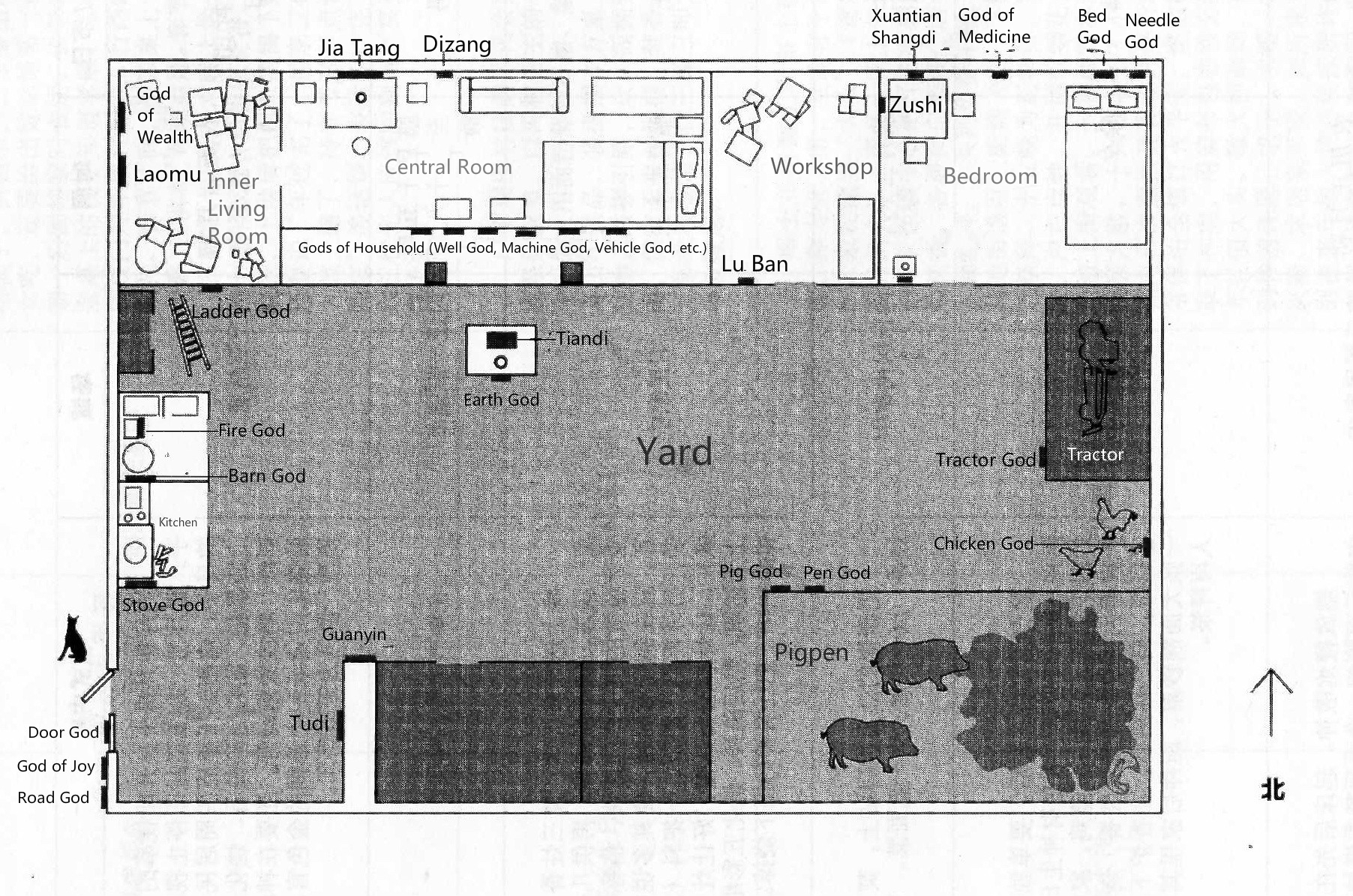The Placement of Paper Gods in Domestic Space
Since the rituals and placement of paper gods mostly corresponds with a rural setting, the changes in living condition will affect the use of paper gods. In Neiqiu region, for example, the families who live in the villages still use a large number and verity of paper gods in and around their homes, while the families living in apartment buildings in the towns uses far fewer paper gods in their household. Since the space in an apartment is very different from that of a rural house, many of the paper gods lost their place within the new urban space. Even the central alter, the Tiandi Table, is eliminated due to the compact space within an apartment, thus diminishing the entire ritual space within the home. Moreover, the compact space of the apartment building also limits the residents’ ability and willingness to perform traditional rituals like paper or incense burning. As a result, the urban residents’ attitude towards paper gods changes as well—instead of housing all paper gods in their home and performing the rituals according to season, they only invite and worship certain deities when they have particular wishes or demands.[1]
[1] Geng Han, 238-241.
